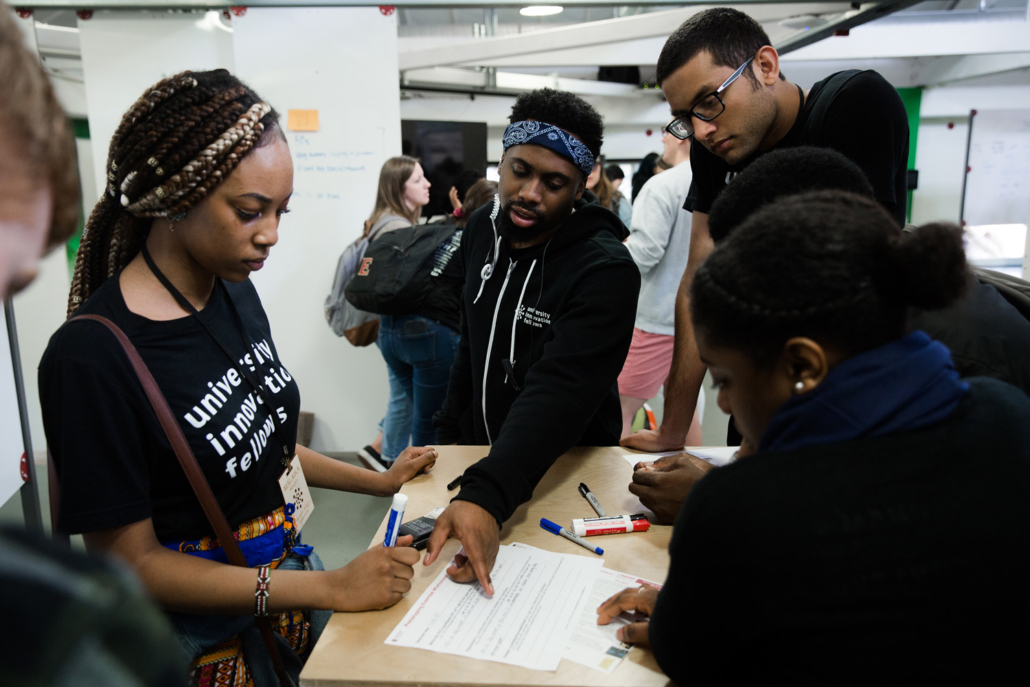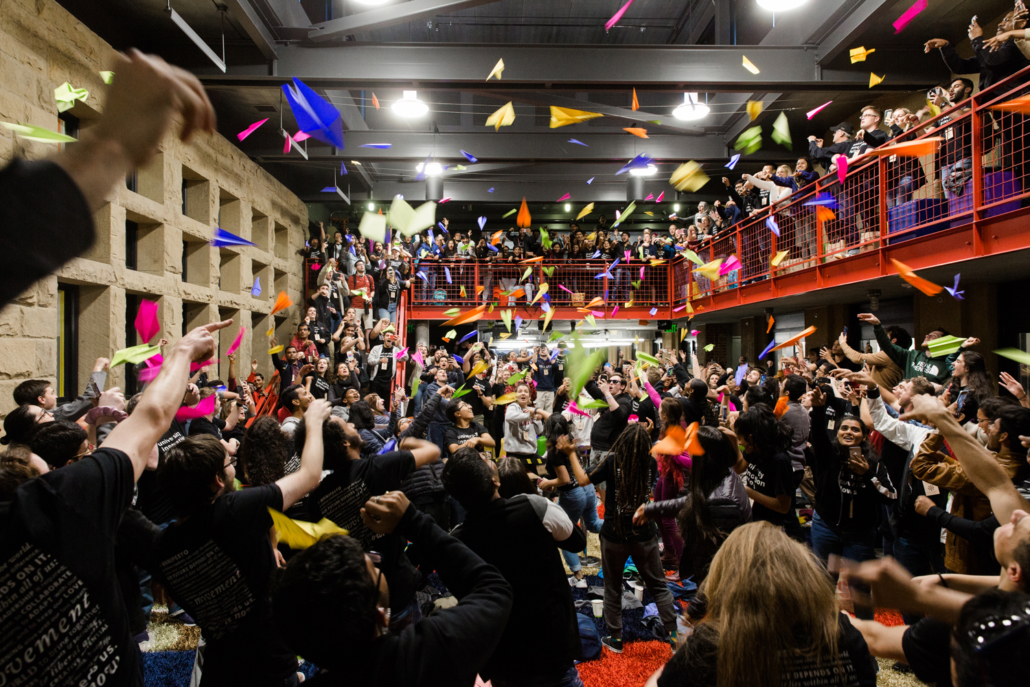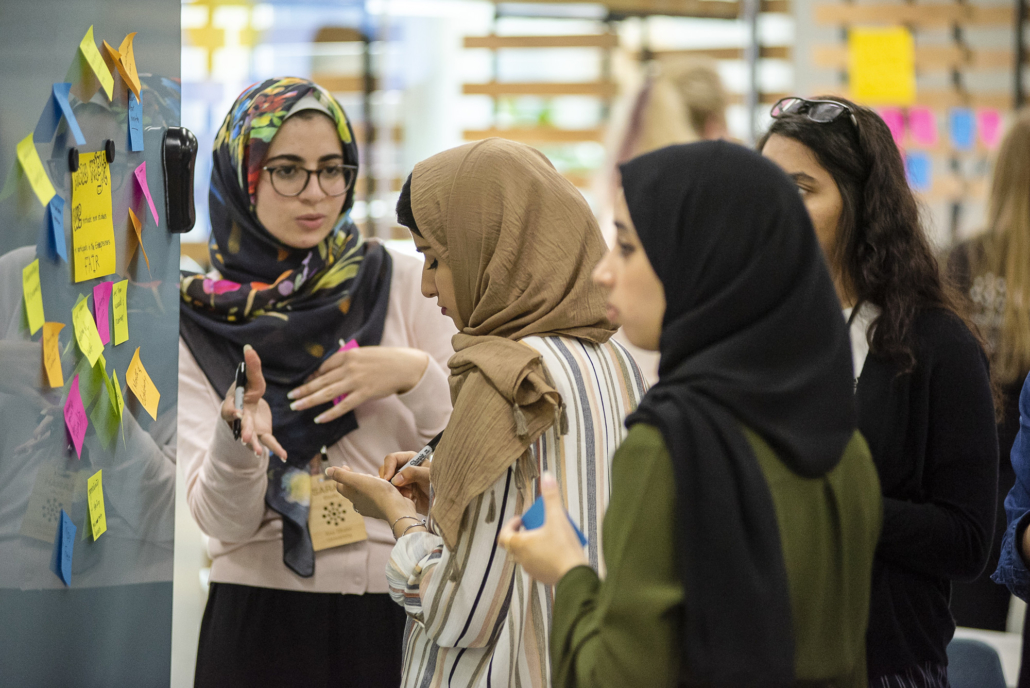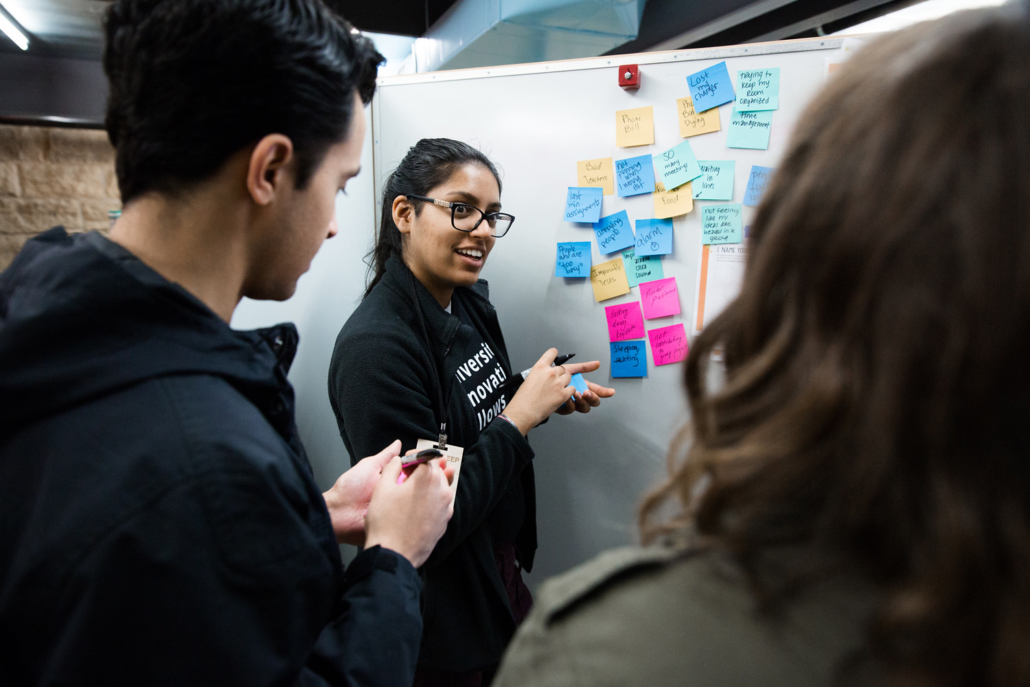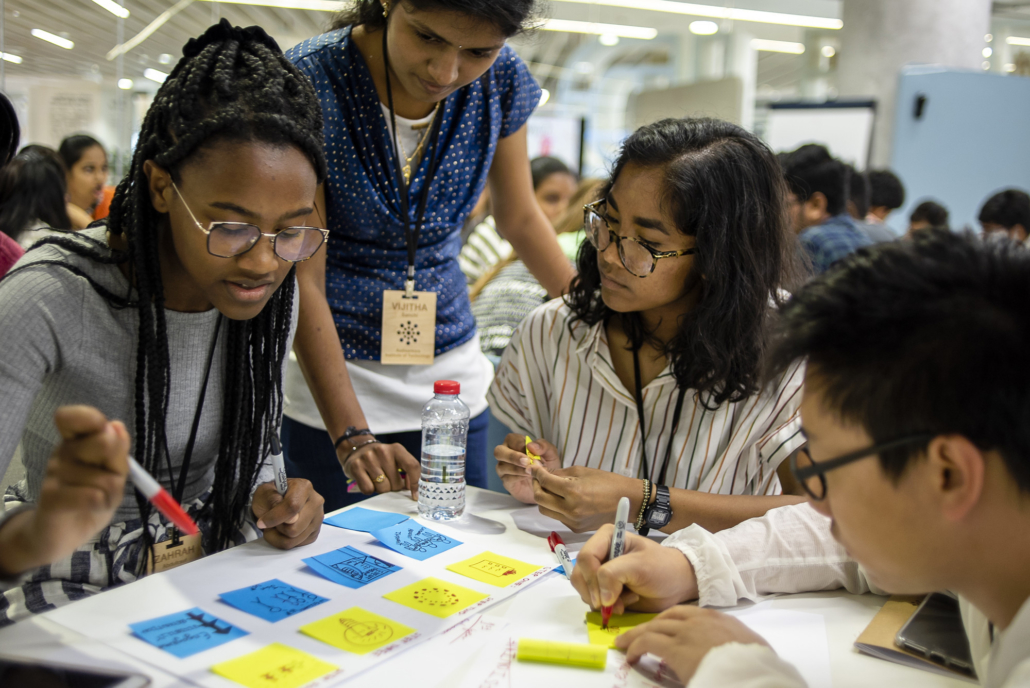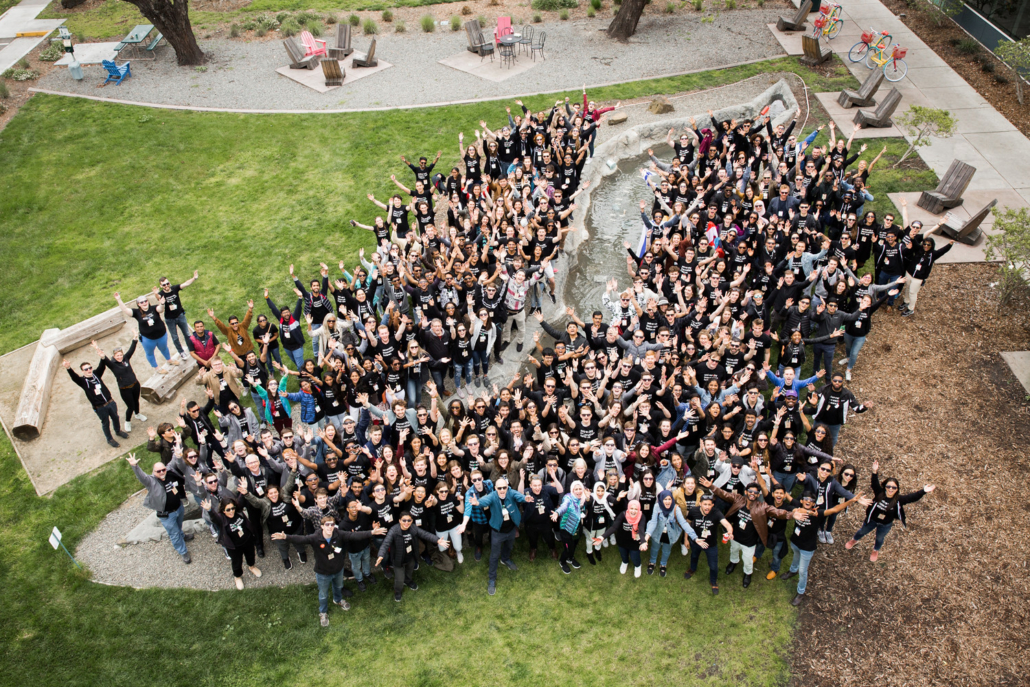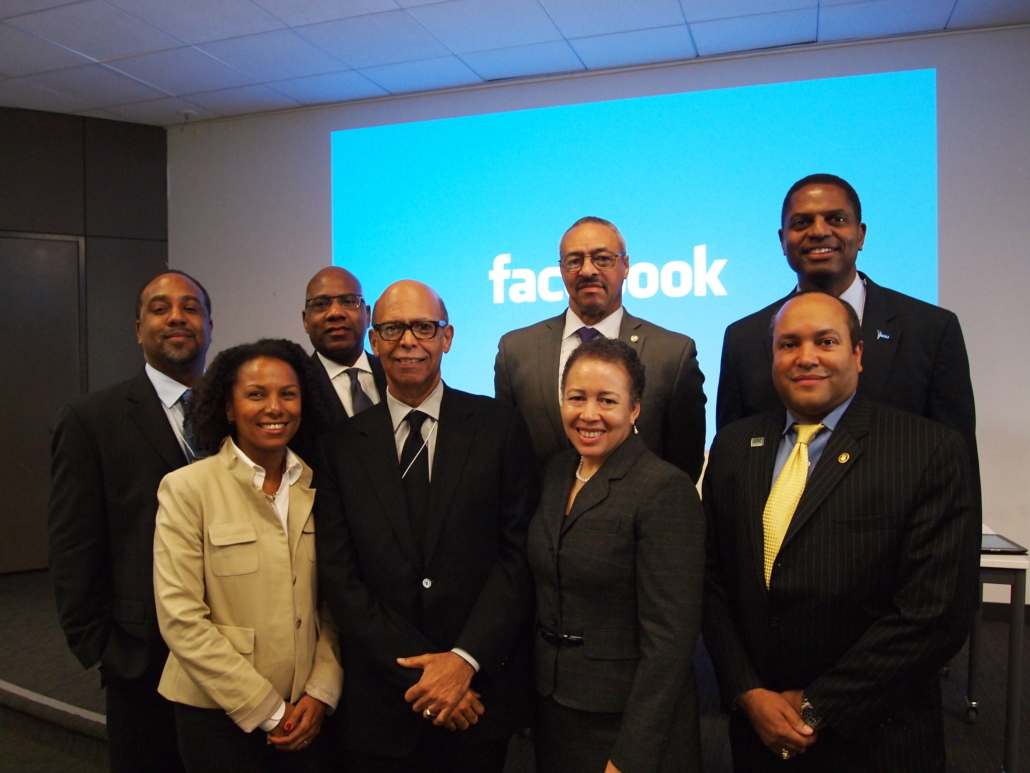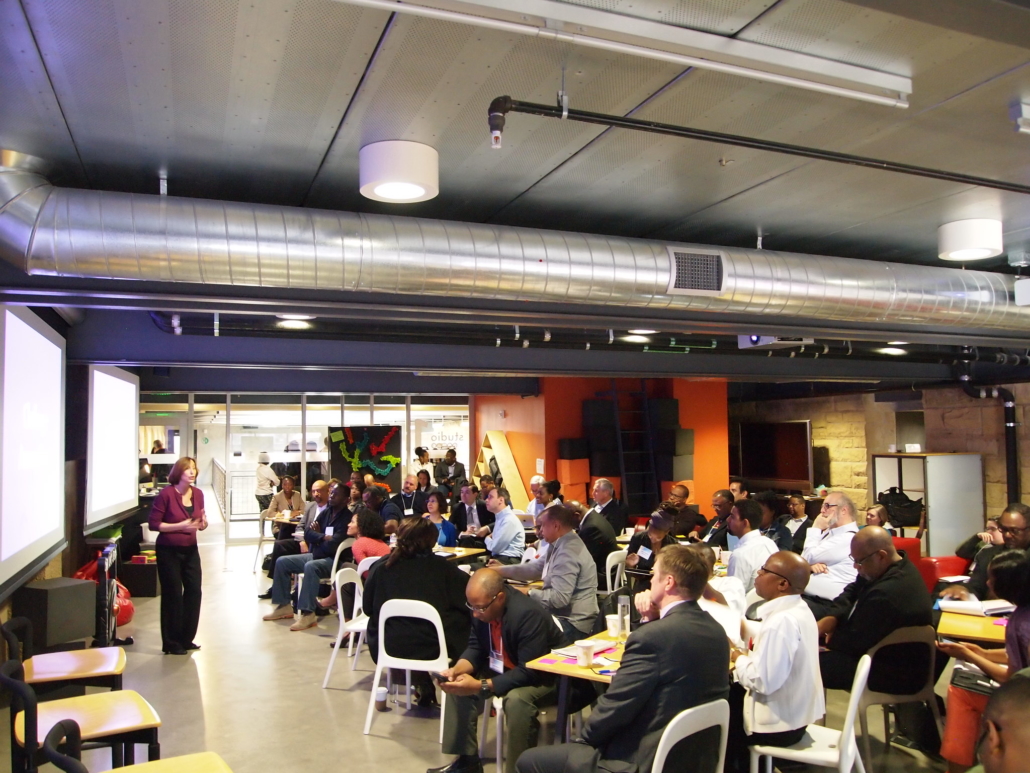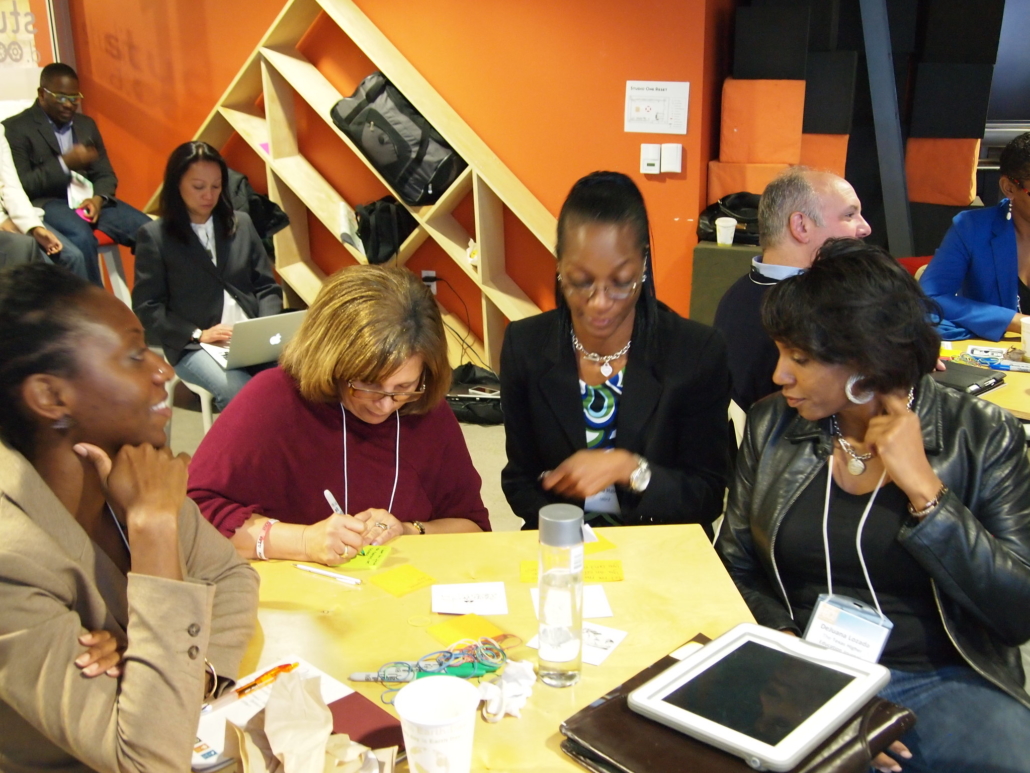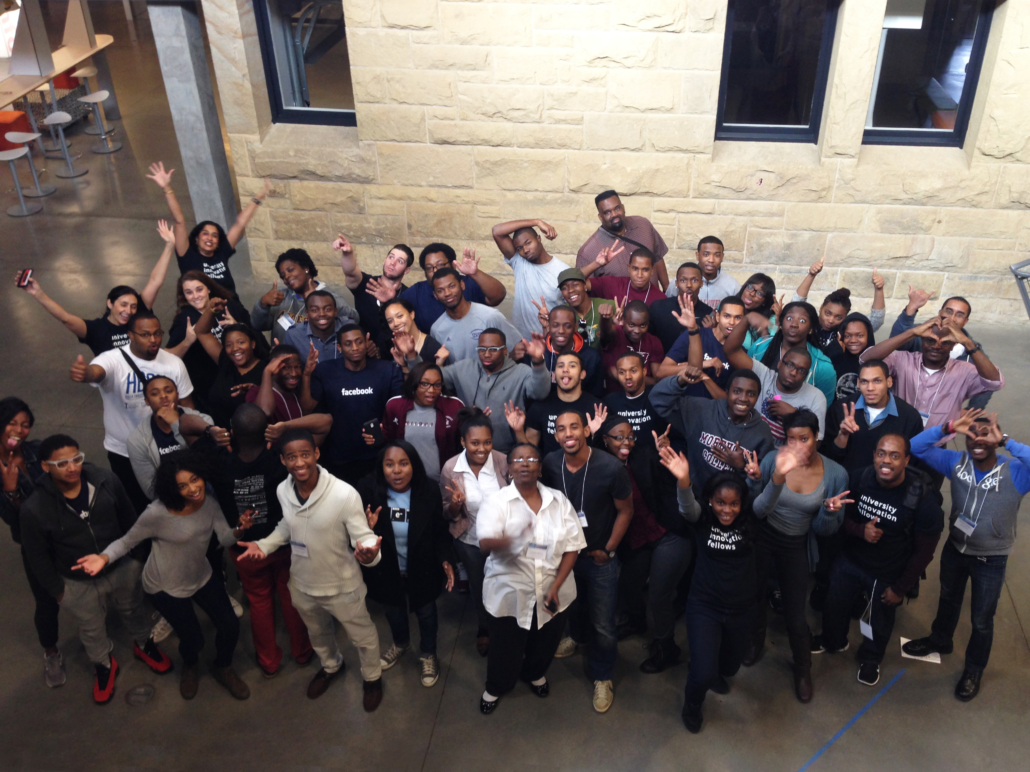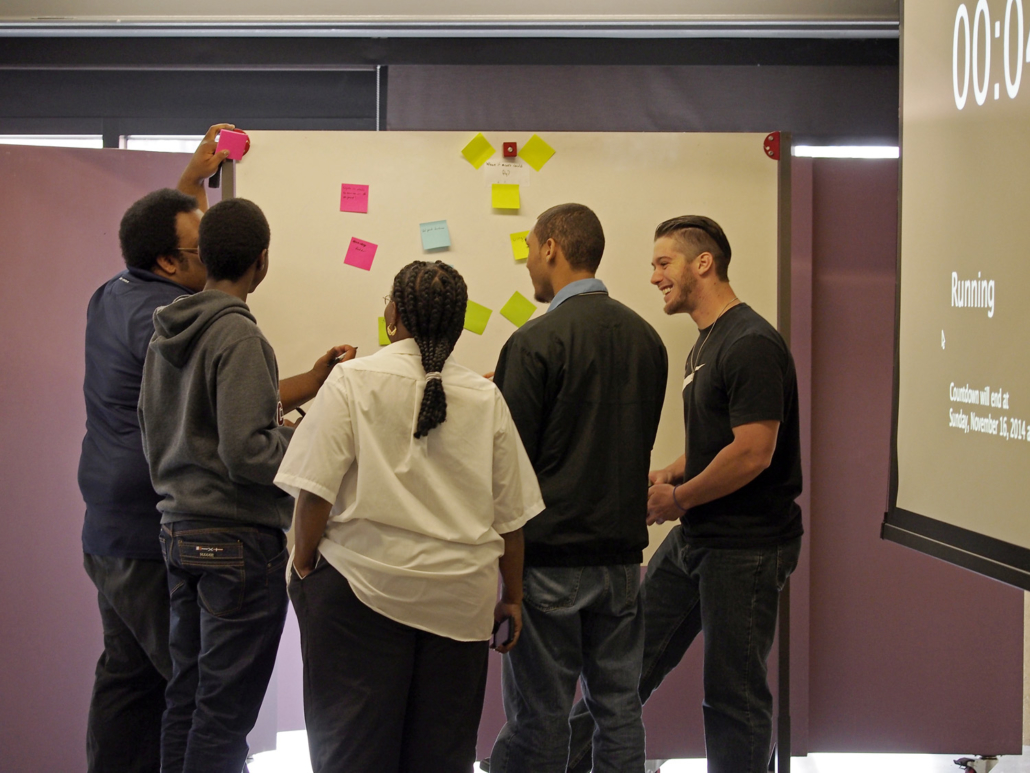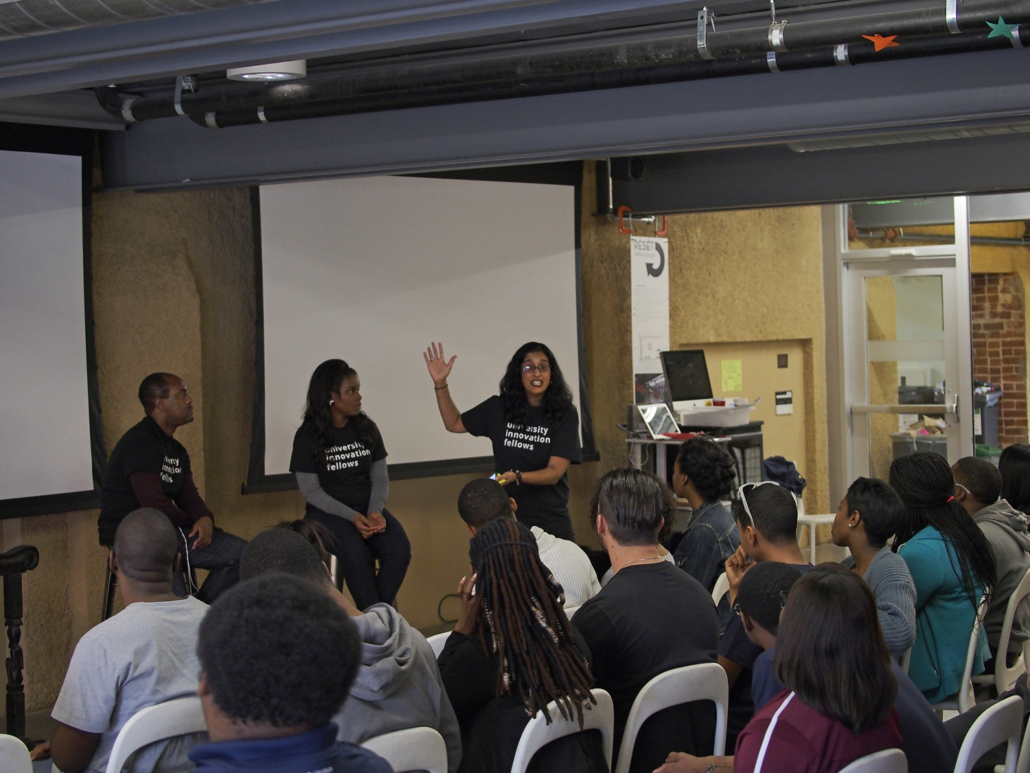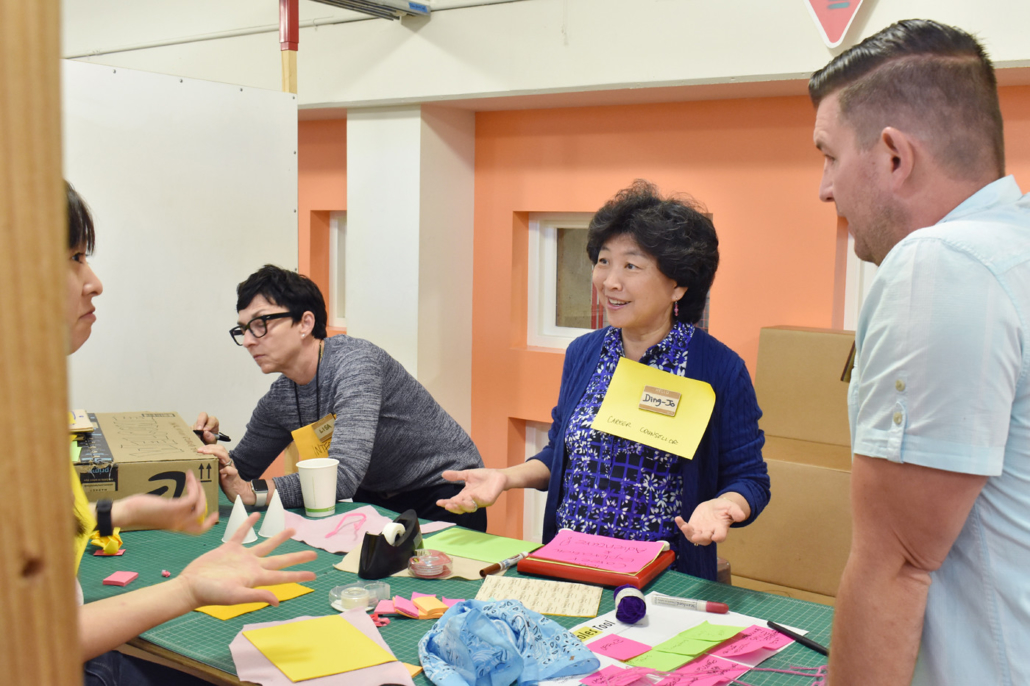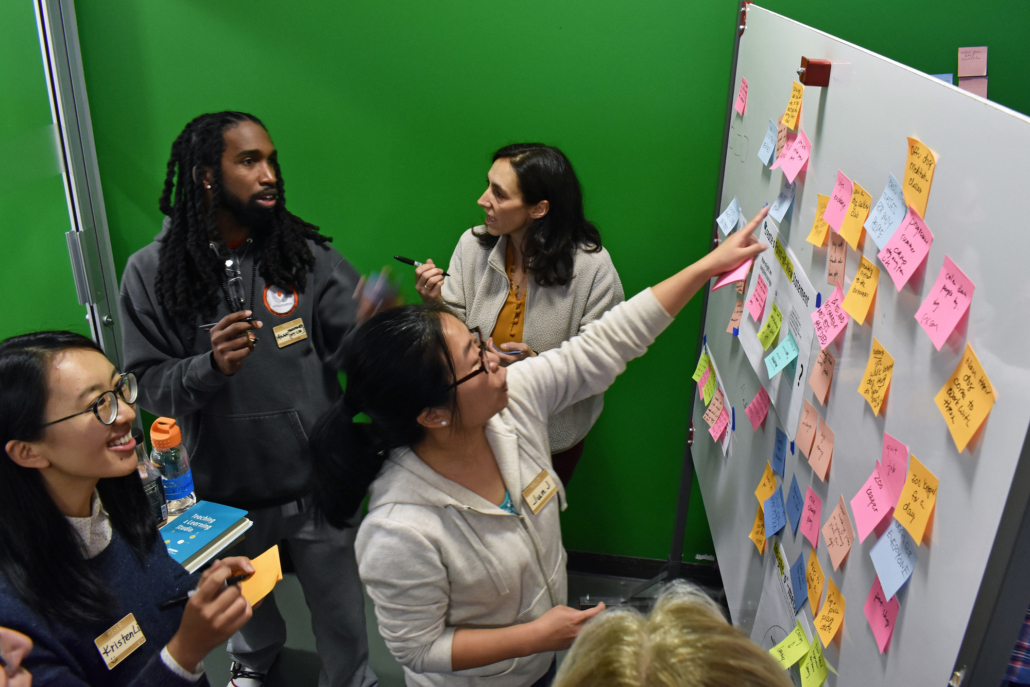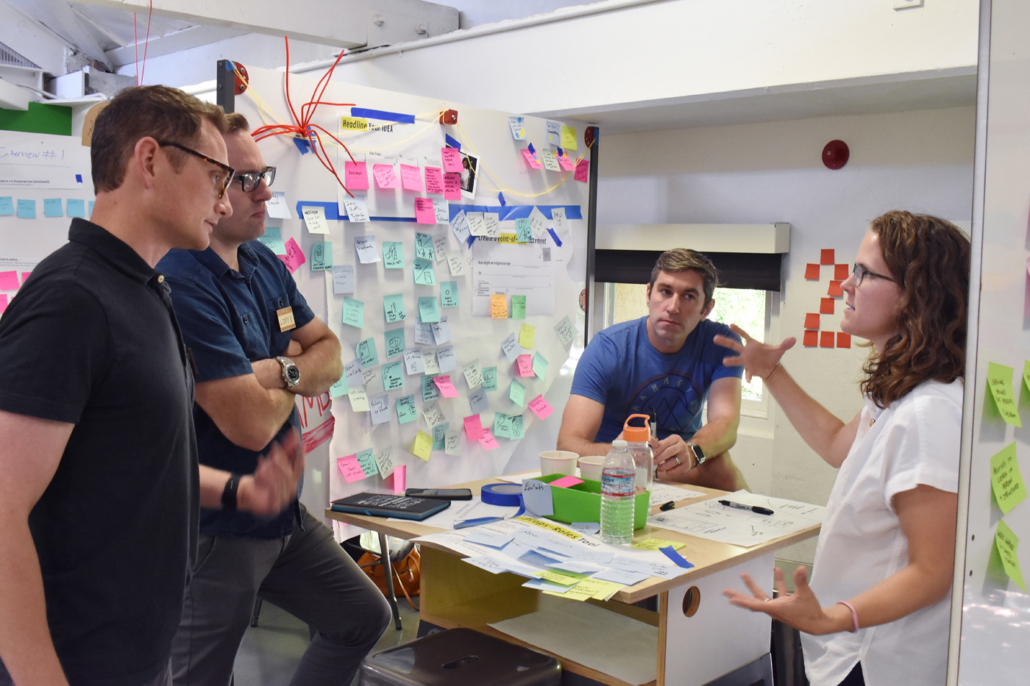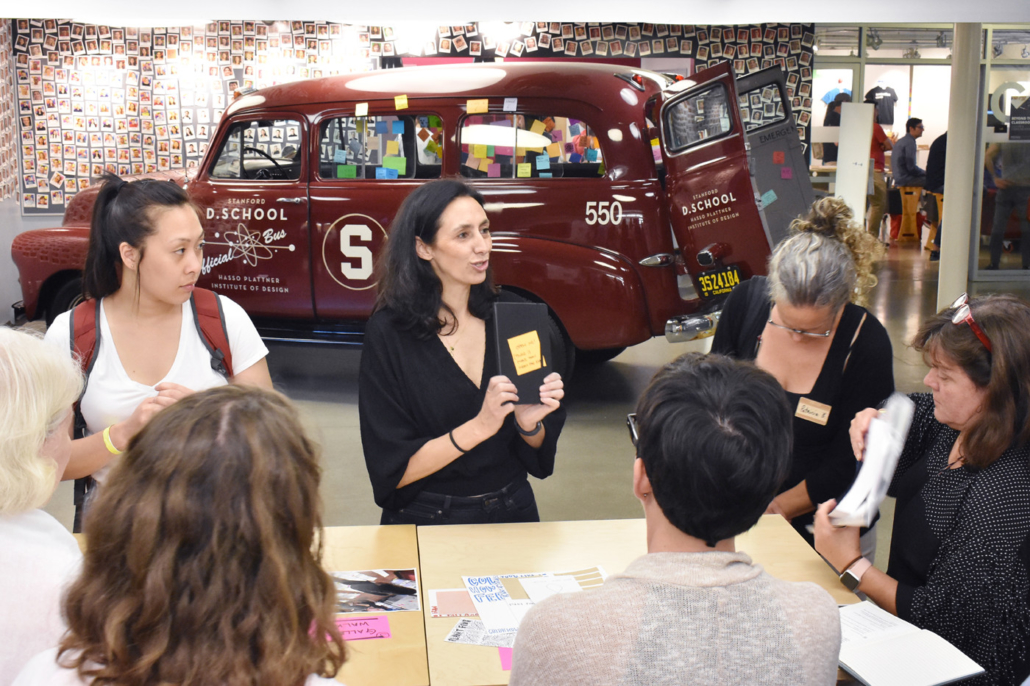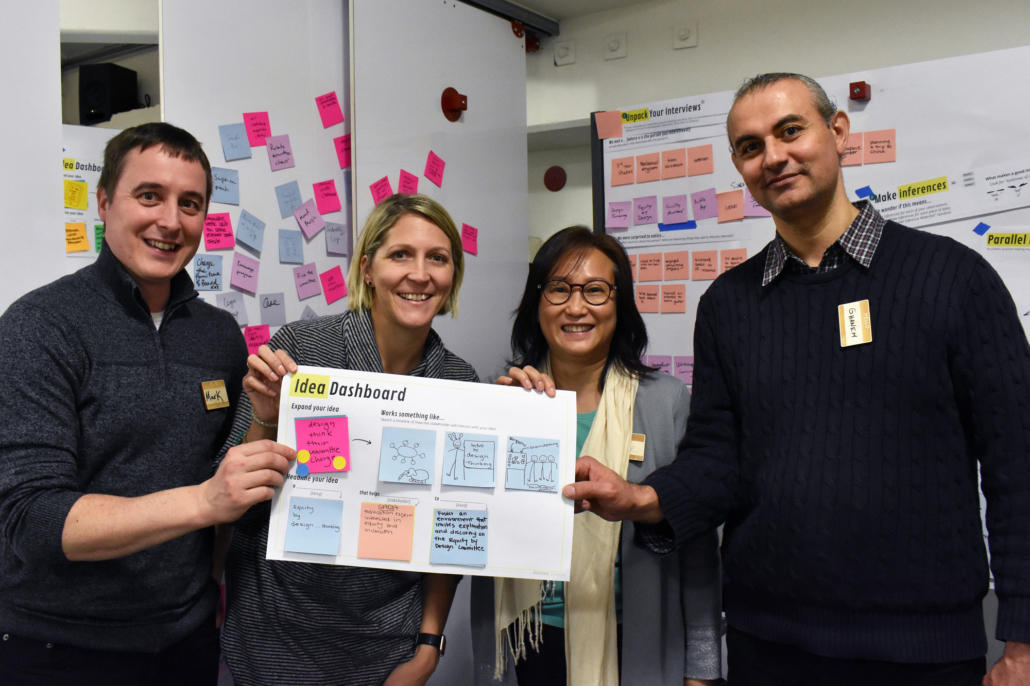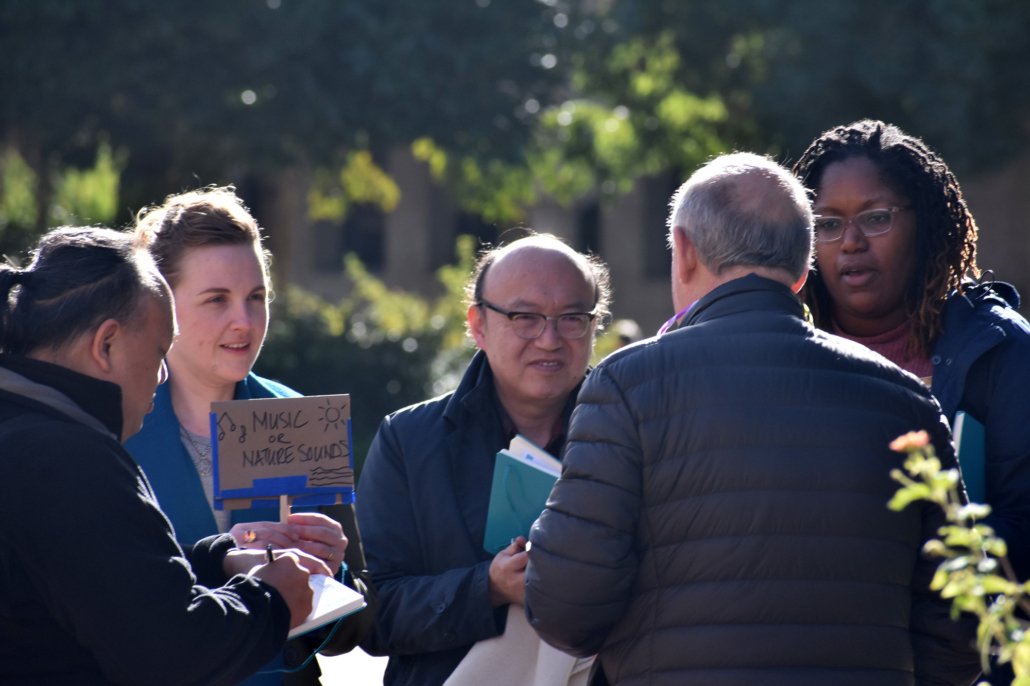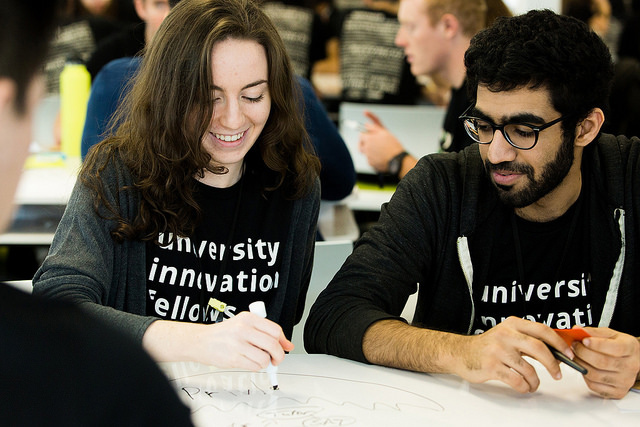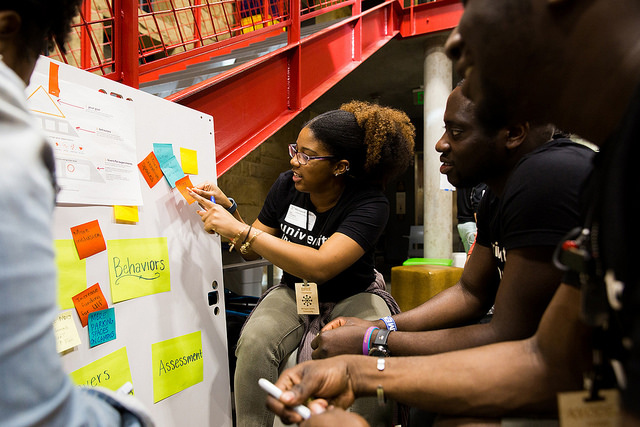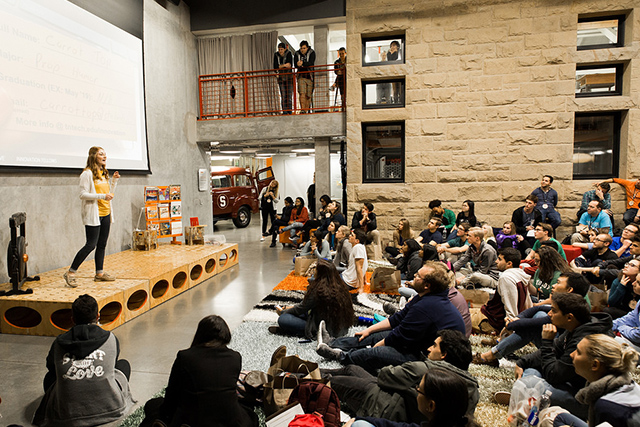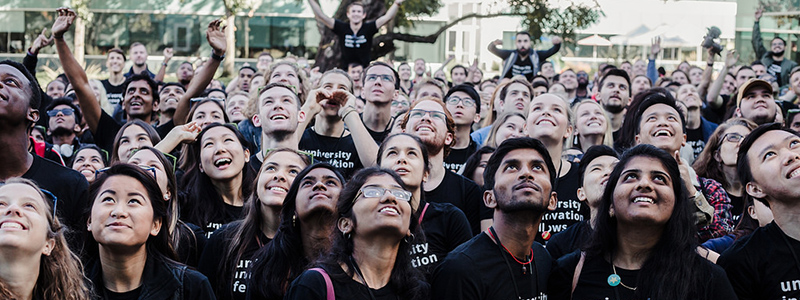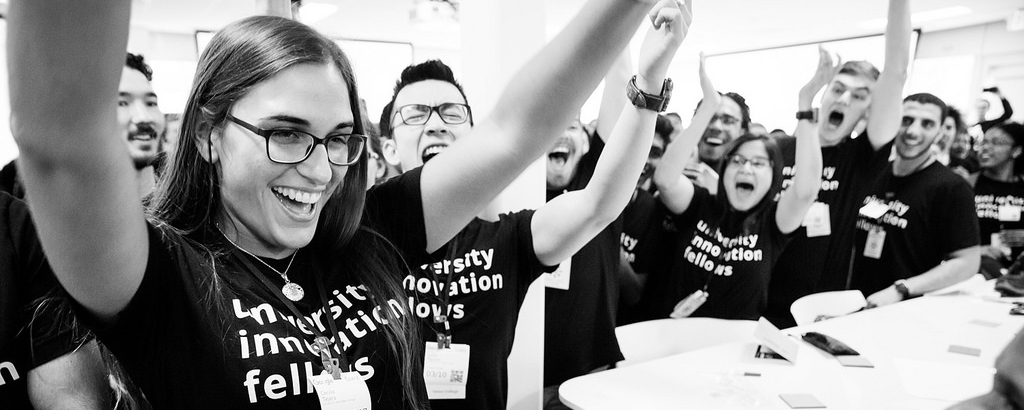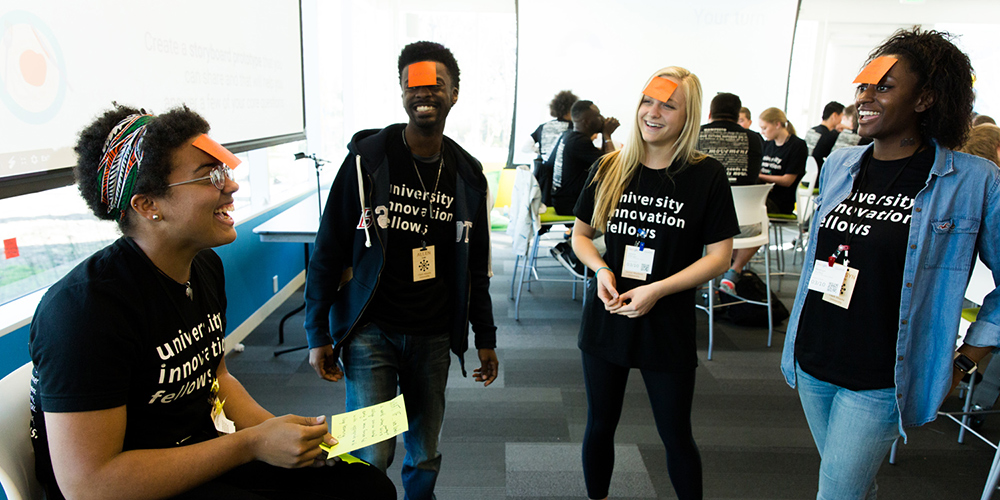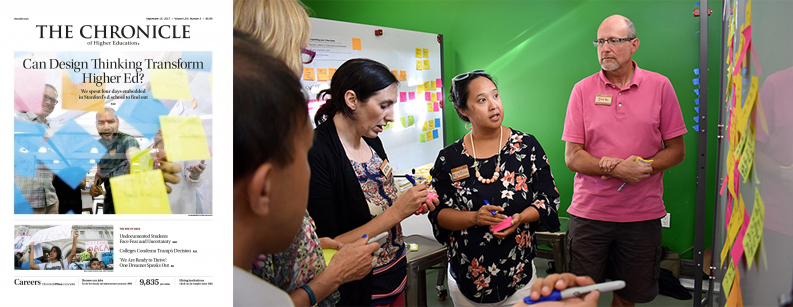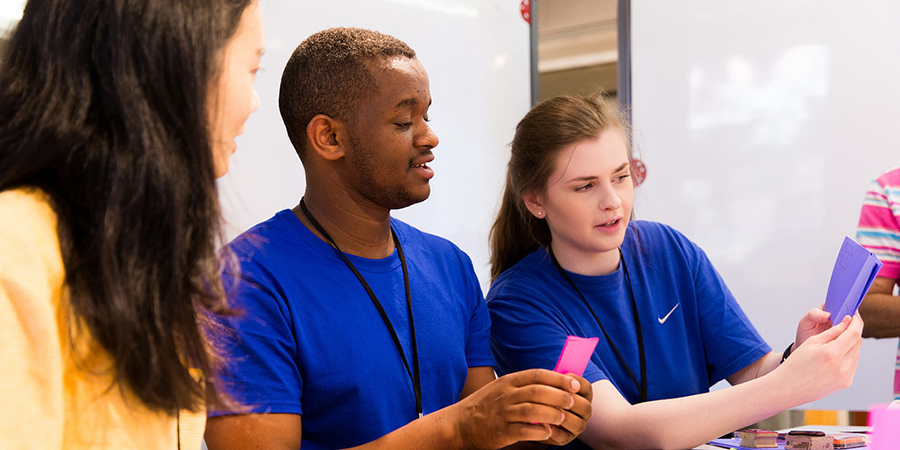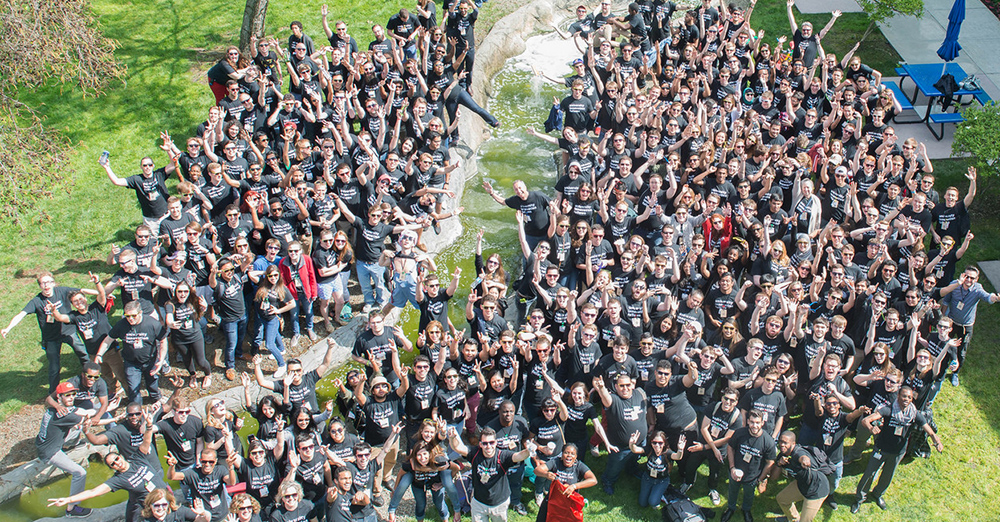Announcing the 2024 Cohort of University Innovation Fellows
Congratulations to the 163 students from 45 higher education institutions in 13 countries who have been named University Innovation Fellows this year!
The University Innovation Fellows program empowers students to become agents of change at their schools. Fellows work to ensure that all students gain the attitudes, skills and knowledge required to navigate a complex world and build the future.
These student leaders from schools around the globe create opportunities to help their peers build the creative confidence, agency, and entrepreneurial mindset needed to address global challenges. Fellows create student innovation spaces, start entrepreneurship organizations, facilitate experiential workshops, work with faculty and administrators to develop new courses, and much more. They serve as advocates for lasting institutional change with academic leaders, lending the much-needed student voice to the conversations about the future of higher education.
The program is run by Stanford University’s Hasso Plattner Institute of Design (d.school). With the addition of the new Fellows, the program has trained more than 3,300 students since its creation.
“Higher education institutions around the world need student leaders to be involved in shaping the experience of teaching and learning.” said Humera Fasihuddin, co-director of the University Innovation Fellows program. “Students can provide an essential perspective on what learners need to succeed and thrive in the world today, and students can take the lead on making the necessary changes happen at their schools.”
“These changemakers aren’t just dreaming about tomorrow — they’re building it.” said Leticia Britos Cavagnaro, co-director of the University Innovation Fellows program. “While lifting up their campus communities, they’re mastering design and leadership skills that will serve them for years to come.”
The new Fellows join the program from the following schools:
- Aditya College of Engineering
- Aditya College of Engineering and Technology
- Aditya University
- Alabama A&M University
- American International College
- Baylor University
- Bowie State University
- Central Michigan University
- Duke University
- Elon University
- Hamburg University of Technology
- Helmut Schmidt University
- Hong Kong Baptist University
- Iona University
- Istanbul Technical University
- Ithaca College
- Lingnan University
- Lucian Blaga University of Sibiu, Romania
- Madanapalle Institute of Technology & Science
- Middle East Technical University
- Milwaukee School of Engineering
- National Institute of Development Administration
- Pontificia universidad católica del Perú
- Prasad V. Potluri Siddhartha Institute of Technology
- Rowan University
- Santa Monica College
- South Plains College
- Sri Venkateswara College of Engineering
- Swarthmore College
- Tohoku University
- Trinity College
- Universidad Católica del Uruguay
- Universidad de Ingeniería y Tecnología
- Universidad de los Andes, Chile
- Universidad Peruana de Ciencias Aplicadas
- Universidad Tecnológica (UTEC), UY
- University of Galway
- University of Georgia
- University of North Florida
- University of North Georgia
- University of Toronto
- Utah Valley University
- Vasireddy Venkatadri Institute of Technology
- Vidyavardhaka College of Engineering
- Wake Technical Community College
Fellows are nominated by faculty and administrators as individuals or teams of students and selected through an application process each year. Following acceptance into the program, students participate in a 6-week online training experience. During training, Fellows learn to analyze their campus ecosystems and identify opportunities for change related to innovation, entrepreneurship, design thinking, and creativity. They work to understand the needs of peers across disciplines and the perspectives of faculty and administrators. They apply this new knowledge and perspective to design new educational opportunities for their peers. After training, Fellows implement the projects they crafted. They continue to serve as change agents and leaders at their schools and beyond.
Faculty and administrators who guide Fellows, known as Faculty Champions, also have the ability to engage in a community of Faculty Innovation Fellows. This cohort-based program is a two-year experience that helps educators work to identify and design their own projects to make a difference at their schools. Led by a team of veteran Faculty Champions, candidates are part of a community of practice, collaborating with other faculty and staff from around the world to learn new change strategies.
About the University Innovation Fellows program:
The University Innovation Fellows program empowers students to become agents of change at their schools. The Fellows are a global community of students leading a movement to ensure that all students gain the necessary attitudes, skills and knowledge required to compete in the economy of the future. These student leaders from schools around the country create new opportunities that help their peers develop an entrepreneurial mindset, build creative confidence, seize opportunities, define problems and address global challenges. Fellows are creating student innovation spaces, founding entrepreneurship organizations, hosting experiential events, and working with faculty and administrators to develop courses. They serve as advocates for lasting institutional change with academic leaders and represent their schools at national events. The University Innovation Fellows is a program of Stanford University’s Hasso Plattner Institute of Design (d.school). Learn more at universityinnovationfellows.org.
Media contact:
Laurie Moore
Communications Director
University Innovation Fellows Program
Hasso Plattner Institute of Design (d.school)
717-982-1218
laurie@dschool.stanford.edu

